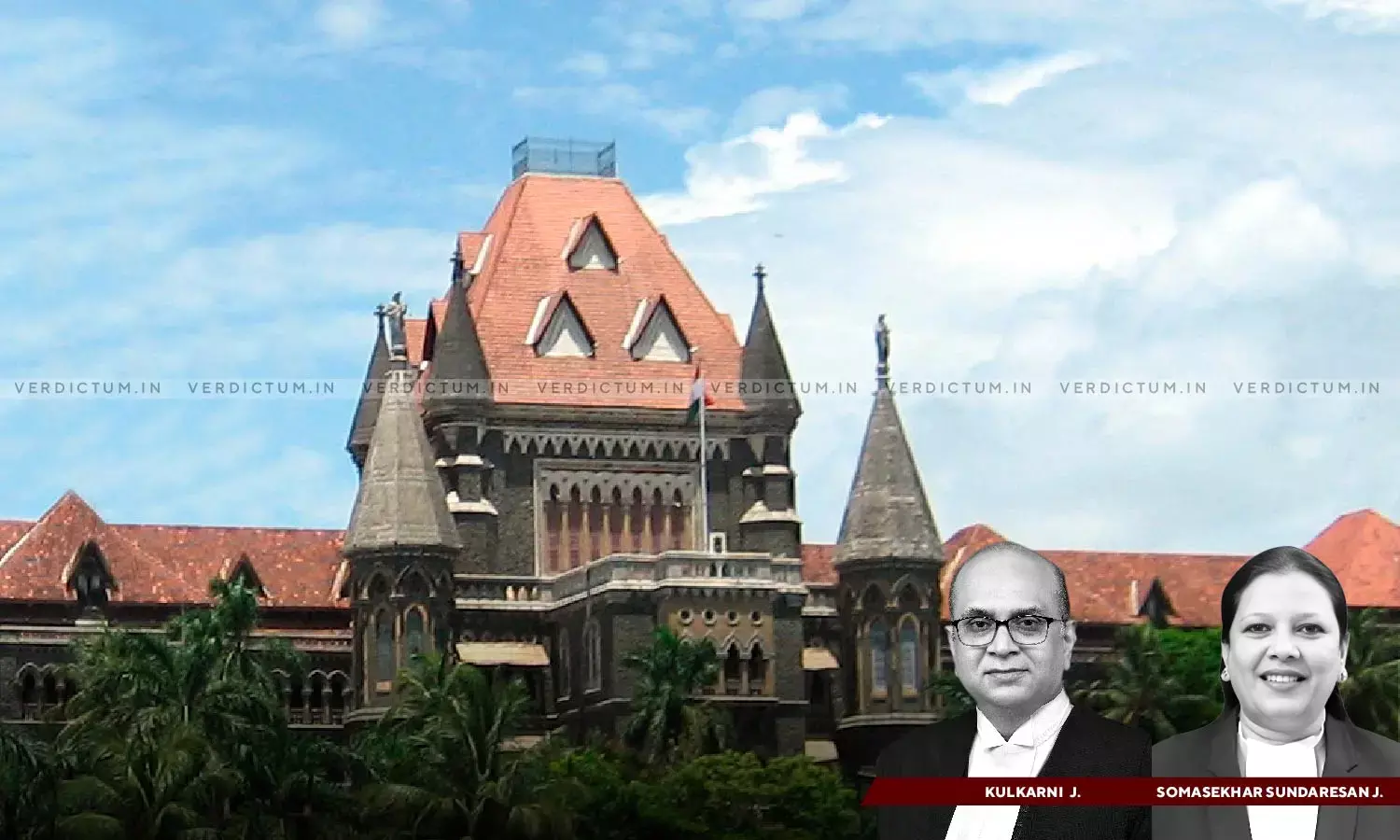Publicity Interest Petition: Bombay HC Dismisses Law Students' PIL Against Declaration Of Public Holiday On Ram Mandir Prana Pratishta Ceremony

The Bombay High Court dismissed a Public Interest Litigation (PIL) filed by a group of law students challenging the declaration of a public holiday issued by the Government of Maharashtra in conjunction with the Prana Pratishtha Ceremony of the Ram Mandir.
In this context, the Court observed the broader principles governing the declaration of holidays as matters of executive policy, especially when influenced by religious considerations.
The Court emphasized that the Courts of Justice must not be tainted by individuals lacking integrity who exploit extraordinary jurisdiction.
“The Courts of justice should not be allowed to be polluted by unscrupulous litigants by resorting to the extraordinary jurisdiction”, the Bench comprising Justice G. S. Kulkarni and Justice Neela Gokhale observed.
Additional Solicitor General Devang Vyas appeared for the Union, General Advocate Birendra Saraf appeared for the State and Senior Advocates R. S. Apte and Sanjeev M. Gorwadkar appeared for the Intervenor.
The petitioners, law students from colleges in Maharashtra and Gujarat, initiated a Public Interest Litigation challenging the validity of the notification issued by the Government of Maharashtra on 19 January 2024. The notification declared 22 January 2024 as a public holiday in celebration of "Shri Ram-Lalla Pran-Pratishtha Din." The impugned notification was issued under Section 25 of the Negotiable Instruments Act, 1881, with authority derived from a 1968 notification by the Government of India, Ministry of Home Affairs.
The Petitioner argued that the decision to declare 22 January 2024 as a holiday was arbitrary and violated the principles of reasonableness as per the Wednesbury standard. Furthermore, they argued that the notification was against public policy, contradicting the secular principles enshrined in the Constitution.
The State contended that the challenge to the impugned notification was flawed since the 1968 Central Government notification was not presented, and no pleadings detailing the illegality of the powers conferred on the State Government. The State argued that any inquiry into such a prayer was beyond the scope of the petition.
The Intervenors contended that the petition was an abuse of the legal process and deemed non-maintainable. They asserted that the Public Interest Litigation (PIL) lacked merit, characterizing it as frivolous, vexatious, malicious, and primarily driven by publicity motives. According to their submission, the petition was strategically filed at the last minute and presented to the court on a holiday with the alleged intention of garnering attention.
The Intervenors argued that 17 other states had already declared a similar holiday, emphasizing the discretion vested in the government to make such decisions without violating constitutional provisions. They also underscored the absence of any grievance against the notification issued by the Central Government, questioning the selectivity of the petition against the State Government's notification.
The Court noted that the declaration of holidays falls within the ambit of executive policy, inclusive of those influenced by various religions. Such decisions, rooted in the broader public interest and fostering constitutional sentiments, were deemed non-arbitrary. The Bench noted that the petitioners failed to establish any arbitrariness in the State Government's decision. Moreover, their contention that the State Government lacked the authority to issue the notification, particularly when the Central Government's notification was not part of the petition, was dismissed.
The Court observed that established principles of judicial review did not support their claim of the State Government's non-compliance with the law. Expressing concern over the petitioners, described as law students, the Court criticized their lack of understanding of the doctrine of locus standi and the careful use of Public Interest Litigation (PIL).
The Court deemed the petition politically motivated and driven by publicity, considering it a trumpery of the legal process. The Petitioners' statements, questioning the wisdom of the Supreme Court, were condemned as shocking and far from bona fide. Serious allegations made by the petitioners were considered implausible for law students. The Court cautioned against abusing the PIL jurisdiction, referencing a Supreme Court Judgment in the case of S. P. Gupta v Union of India [1981supp SCC 87] that criticized unscrupulous litigants and urged the Bar Councils to prevent the abuse of legal processes.
The Court held that the petition lacking in substance and motivated by extraneous considerations, ultimately cautioning the petitioners to exercise greater care and circumspection in pursuing such causes.
Accordingly, the Court dismissed the Petition.
Cause Title: Shivangi Agarwal & Ors. v The Union of India & Ors. (2024:BHC-AS:2839-DB)

